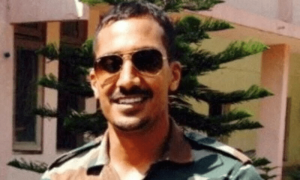Today is set to be a historic day for the judiciary and politics in Pakistan. Prime ministers have been removed before and prime ministers have survived, but none have been subjected to the kind of public and mostly transparent scrutiny that Prime Minister Nawaz Sharif and his family have undergone.
Whether Mr Sharif is determined to be unfit for public office, his case is referred to the accountability courts for trial or the Supreme Court decides on some other course of action, an undeniably welcome precedent has already been set: a sitting prime minister and his family have been required to explain the sources of their income and wealth.
In a country where public officials, elected and unelected, routinely and brazenly live beyond their known and legal sources of income and wealth, the Panama Papers case may be the beginning of a new era of public disclosure and accountability. The Pakistani people deserve a better, more transparent and more accountable leadership in all state institutions.
With the political stakes so high, it is inevitable that there will be a great deal of disappointment today in one camp or the other. What is important is for the Supreme Court judgement to be respected and for its orders to be promptly obeyed.
Long after today, and much after Mr Sharif exits the political landscape, the country will need an independent judiciary to help keep the democratic process within the ambit of the law and the Constitution. At times, both the petitioners and the respondents in the Panama Papers case have drifted perilously close to politicising the court and bringing the institutions of democracy into disrepute.
The Supreme Court may have demonstrated undue restraint towards the political circus that threatened to engulf it, but the court has an opportunity to further the cause of accountability and strengthen the democratic project by delivering a well-reasoned, well-argued judgement. By doing so, it will rightly put the onus on Pakistan’s political leadership to respond with a democratic maturity to the verdict and accept it as part of a continuing process to strengthen democracy.
Finally, the political class itself must introspect after this episode. While robust political competition is important to democracy, the PML-N and PTI have allowed their rivalry to drag the country backwards. The spectre of the 1990s has returned and there is a possibility that between the determination of the Nawaz Sharif-led PML-N to remain in power come what may and that of the Imran Khan-led PTI to ascend to power no matter what, the democratic project itself may unravel.
Democracy will not be threatened merely by the exit of Mr Sharif, nor will it be boosted automatically by the triumphant elevation of Mr Khan. The two leaders must urgently learn a humility that neither has seemed capable of so far.
Published in Dawn, July 28th, 2017














































